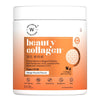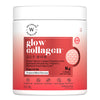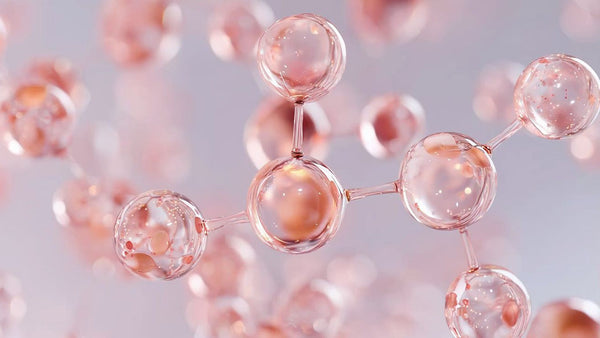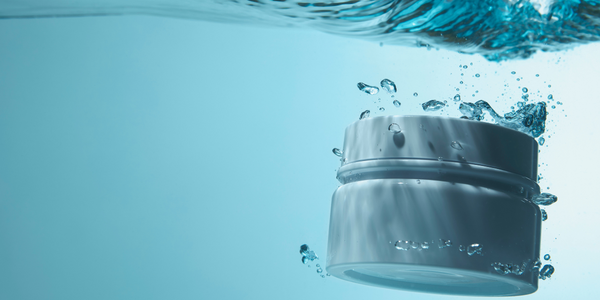We all eagerly anticipate our birthdays, but ironically, we don't enjoy getting older, especially after our twenties. Why is it that everyone is obsessed with staying young forever? The truth is that as we get older, we develop various beauty and health issues, such as wrinkles, bone demineralization, and hair loss. While you cannot reverse your biological age, you can certainly maintain and protect your body by delaying the aging process.
If you're a beauty enthusiast, you've probably heard the term marine collagen a few times. This magical ingredient has taken over the beauty world, but did you know it has benefits that extend beyond skin and hair? After all, aging not only alters your appearance on the outside but also causes internal changes. On the surface, you may notice pigmentation, wrinkles, hair thinning, and so on. Internal deterioration, such as decreased eyesight, weaker bones, decreased muscle mass, and so on, occurs concurrently. Thankfully, collagen supplements can help us reverse these effects of aging.
In this blog, we'll look at how collagen affects aging and why marine collagen has become the preferred source.
What is Collagen?
The most abundant protein in the human body is collagen. It makes up 25% to 30% of our proteins and is an important component of connective tissue. Collagen is required for the formation of hair, skin, connective tissue, bones, and nails, as well as blood vessels, organs, and intestinal lining. After the age of 20, we produce 1% less collagen each year. Furthermore, sun exposure, smoking, excessive alcohol consumption, a sedentary lifestyle, and sleep deprivation reduce its production. This is where collagen supplements come in handy. Mostly derived from animal sources like marine (fish) collagen or bovine (cow) collagen, these supplements work from the inside to boost collagen in the body.
Types of Collagen
Over 28 types of collagen have been discovered to date. Out of these, we have listed the most common types of collagen and their functions.
- Type I: 90% of our body’s collagen is Type I collagen. It imparts structure to tendons, ligaments, bones, skin, and ligaments.
- Type II: Elastic cartilage contains Type II collagen, which gives support to the joints.
- Type III: Our muscles, arteries, and organs primarily contain type III collagen.
- Type IV: This one is present in the outer layers of our skin.
- Type V: The tissue of the placenta, the cornea of our eyes, and some layers of the skin and hair contain type V collagen.
Why is Marine Collagen Dominating the Market?
Marine collagen is considered to be the best collagen compared to bovine or plant collagen. Mainly obtained from the scales and bones of fish, this type of collagen is known to be better in terms of quality, sustainability, and bioavailability (how well your body can digest it). While there are supplements that use fish biomass as well as by-catch organisms, such as jellyfish, sharks, starfish, and sponges, which possess a very high collagen content, there are brands that sustainably source their collagen from wild-caught Korean deep-sea fish, which are known to have more nutrients and are free of harmful substances.
Bovine collagen, on the other hand, is usually derived from discarded parts of cows that could be contaminated or obtained from those that have been forced-fed antibiotics or abused. It is difficult to analyze whether beef collagen is obtained from organic farms or has been fed with genetically engineered crops, and its efficacy is not on par with marine collagen.
It would not be wrong to claim that plant collagen is a hoax! Technically, plant sources do not contain collagen. However, they are a mix of herbs and vitamins that promote collagen production in the body.
In short, because of the overexploitation of terrestrial resources and the issue of waste disposal, societies all over the world are in desperate need of alternative, sustainable, and environmentally friendly sources. This is why marine collagen is emerging as a powerful competitor in the supplement industry. Not only can it significantly lower environmental impact, but marine collagen is also easily digestible and has a higher efficacy rate.
Benefits of Marine Collagen in Supplements
Collagen is present in abundance in the skin of animals. While preparing non-vegetarian dishes, the skin of these animals is usually discarded and not used for cooking. This skin can, however, be dried and powdered and used as a supplement. Certain daily skin care products promote skin elasticity, regeneration, and smoothness. Topical applications like sunscreen with retinoids can also help prevent damage to skin collagen, thereby protecting the skin’s outermost layers. Similarly, calcium and vitamin D supplements aid in protecting bones. Having said that, providing collagen through food sources and supplements can aid in the antiaging process tremendously, by working on the root cause.
Since collagen cannot be absorbed in its whole form, hydrolyzed forms of collagen are being produced and sold as collagen peptides. These collagen peptides are usually tasteless, but a few supplements do come in flavored versions or capsule forms.
While opting for collagen supplements, go for the ones that also include hyaluronic acid and evening primrose oils to improve both skin and bone health. Hyaluronic acid aids in retaining moisture in the skin, helping it to stay soft and hydrated.
Hyaluronic acid is to your bones what oil is to machines. It provides lubrication between joints and thus prevents the grinding of bones against each other. Similarly, evening primrose oil provides benefits like skin hydration, and elasticity and also prevents certain skin conditions and pigmentation.
Marine collagen supplementation has also been instrumental in improving hair health by reducing hair thinning, greying, and shedding. In short, taking marine collagen for hair would be a smart choice while you follow other steps of a hair care routine.
Additional benefits of marine collagen:
- Promotes gut health: Because it contains high levels of proline, glutamine, and glycine, marine collagen is beneficial for digestion. These amino acids are required for a healthy gut lining.
- Improves muscle mass: Glycine, an amino acid found in marine collagen, can help boost creatine, a necessary muscle protein. Collagen accounts for 10% of muscle tissue and contributes to muscle strength and functionality.
- Promotes heart health: Collagen is required for the structural and functional integrity of our artery walls. Arteries are blood vessels that carry oxygenated blood from the heart to the tissues of the body.
The Increasing Trend of Marine Collagen Peptides
Sales of marine collagen supplements have started gaining momentum in the global collagen market. Researchers are taking a keen interest in marine collagen supplements for their role in various sectors like food, medicine, cosmetics, and pharmaceuticals. Marine collagen supplements are a preferred choice for everyone because of their abundance, safety, high absorption, and bioavailability rate compared to other (bovine) animal sources. It is also environmentally friendly, as parts of the fish that are usually thrown away are used for the manufacturing of marine collagen supplements.
Recent advances in biotechnology have made it possible to extract and incorporate bioactive compounds from marine sources. Most collagen supplements are available in hydrolyzed versions called collagen peptides, i.e., in a form that is already broken down into smaller components for quick and better absorption. Also called collagen hydrolysate or hydrolyzed collagen, these collagen peptides can be taken orally in supplement form. They are highly bioavailable, unlike collagen, which is otherwise difficult to digest. Many supplements also include digestive enzymes like bromelain to help with digestion. These collagen peptides are also easily soluble in hot and cold water and can be added to various beverages.
Wrapping Up
While you can't go back in time, you can maintain your bone, hair, and skin health by consuming collagen supplements. You may prefer marine collagen supplements over those from other sources because of the benefits we’ve noted down in this write-up. Having collagen allergies is a rare occurrence but unless you are allergic to its sources like fish/ eggs, etc. bring it to your doctor’s attention before starting any new supplement.
References
Collagen: An Overview : Implant Dentistry (lww.com)
Skin collagen through the lifestages: importance for skin health and beauty (parjournal.net)
18 Foods With Collagen Boosting Benefits – Cleveland Clinic
https://parjournal.net/article/view/3863
Skin anti-aging strategies - PMC (nih.gov)
Hyaluronic Acid: What It Is, Benefits, How To Use & Side Effects (clevelandclinic.org)
Properties and Therapeutic Application of Bromelain: A Review - PMC (nih.gov)



























